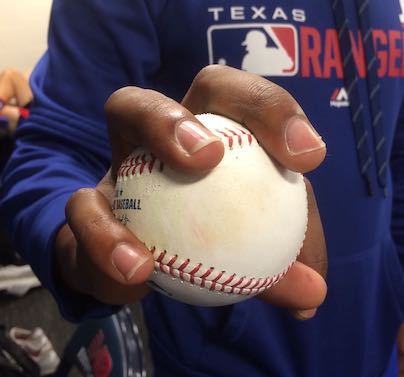Effectively Wild Episode 1405: The Rookie Mistake

Ben Lindbergh and Meg Rowley banter about Meg’s visit to Cleveland, the Giants’ perplexing situation heading into the trade deadline, Edwin Jackson’s next destination, and the approaching addition of ads to MLB jerseys. Then they answer listener emails about whether Mike Trout’s popularity among stat-savvy fans stems from his lack of playoff appearances, the “strikeout player of the game,” whether clutch matters more at lower levels, whether players or coaches could try to doctor data in the age of tech-driven development, a Dallas Keuchel postgame comment, and showing sympathy for injured players, plus bat-dog discussion, a Stat Blast on pitchers who’ve thrown both immaculate innings and three-pitch innings, and a tribute to the late, great Rob McQuown, beloved Baseball Prospectus stat wizard.
Audio intro: Juliana Hatfield, "Everything’s for Sale"
Audio outro: The Coral, "Answer Me"
Link to Trout promo
Link to Zooperstars! mascot characters
Link to story about 1988 Cone column
Link to Keuchel’s “so-so” pitch
Link to video of Piscotty/Rengifo play
Link to picture of Rookie the bat dog
Link to list of immaculate innings
Link to list of three-pitch innings
Link to Rob McQuown’s BP article archive
Link to order The MVP Machine
![]() iTunes Feed (Please rate and review us!)
iTunes Feed (Please rate and review us!)
![]() Sponsor Us on Patreon
Sponsor Us on Patreon
![]() Facebook Group
Facebook Group
![]() Effectively Wild Wiki
Effectively Wild Wiki
![]() Twitter Account
Twitter Account
![]() Get Our Merch!
Get Our Merch!
![]() Email Us: podcast@fangraphs.com
Email Us: podcast@fangraphs.com
Podcast (effectively-wild): Play in new window | Download
Subscribe: RSS



